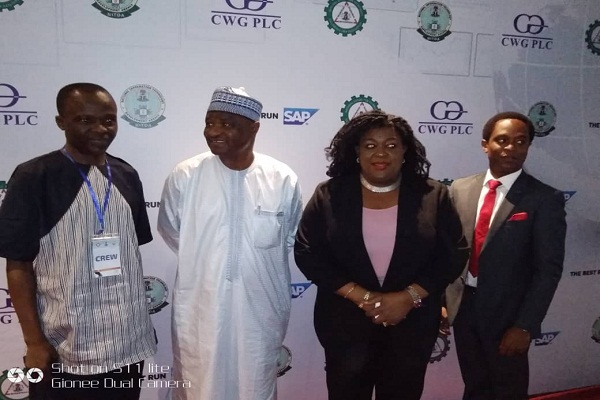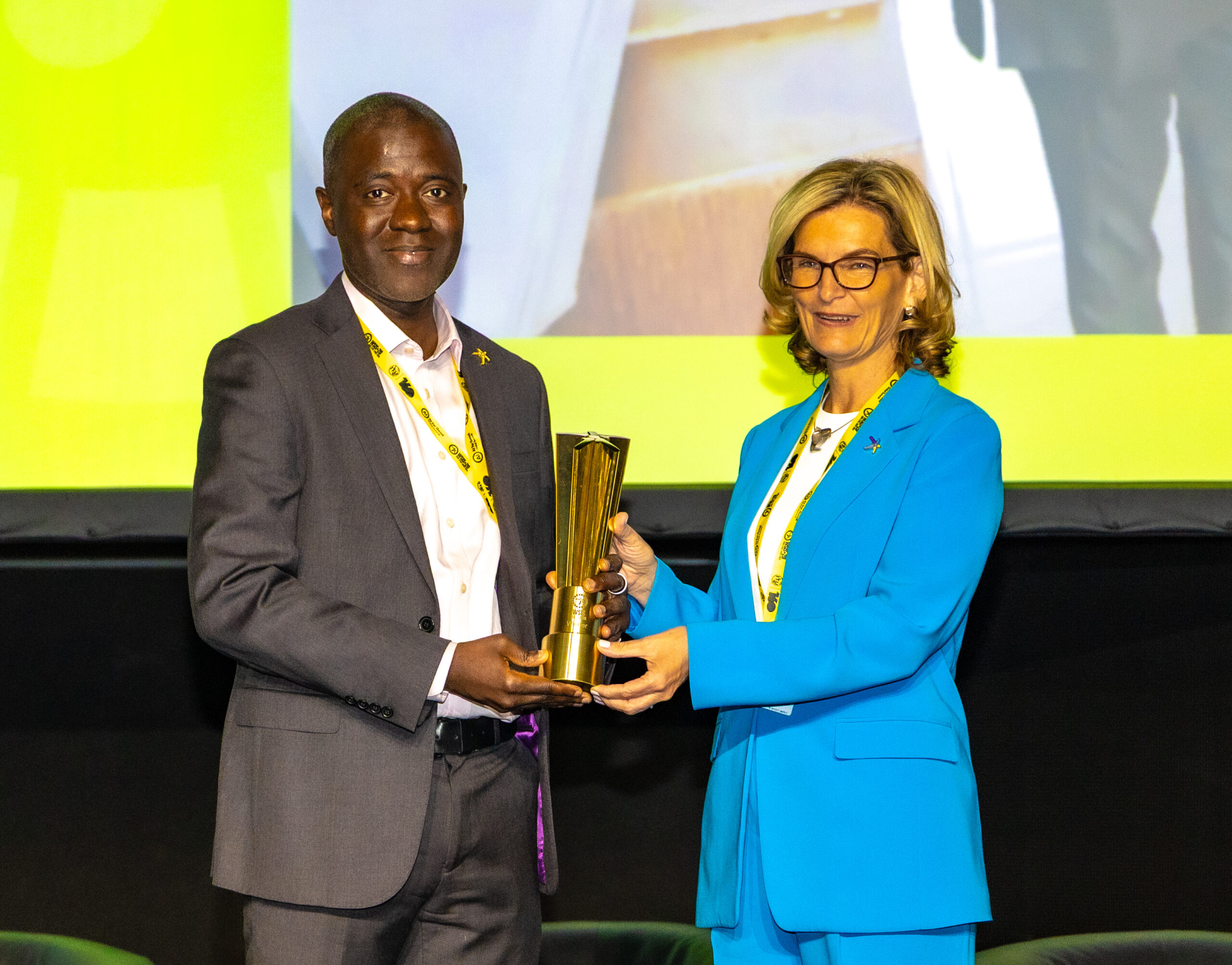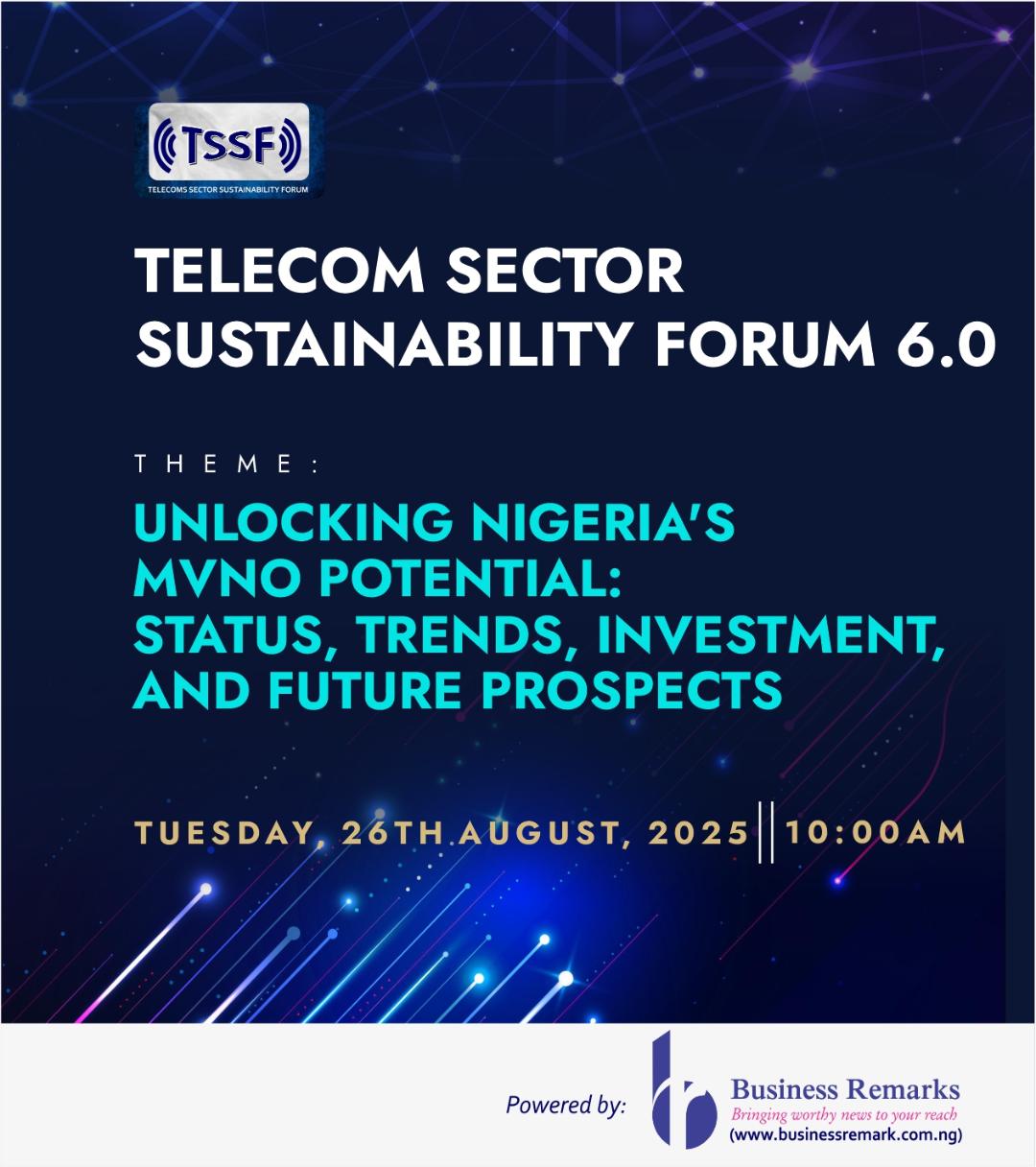Telecom
Stakeholders Reiterate Need For Development of Local Content in the Financial Sector

Stakeholders in the Information and Communications Technology (ICT) have reiterated the need for the use of Nigerian software in the financial sector.
They made this call at the ongoing stakeholder’s roundtable on the use of Nigerian software in the financial sector, with the theme:”Adoption and Development of Local Content Technology as Growth Driver for the Nigerian Economy”, holding in Lagos.
Dr Dan Ibrahim Azumi, DG, National Office for Technology Acquisition and Promotion (NOTAP) While speaking at the event said that their objective is to promote awareness for the development and utilization of local Technology Solutions in various sectors of the Nigerian economy.
According to him, “our objectives are to promote awareness for the development and utilization of local Technology Solutions in various sectors of the Nigerian economy, to discuss the challenges confronting the local Technology Solution Providers, identify specific areas where NOTAP and NITDA can intervene to create an enabling environment to enhance local vendorship.
“And also to identify companies with high demand for software Solutions developed in Nigeria, provide a platform for linking local software suppliers to end-users as an avenue to create and generate employment , income and wealth in Nigeria.”
He decried the huge sums of money being remitted out of the country without the foreign ICT owners assisting local partners to develop its knowledge base, capacity and intelligence as required by the terms of the agreement entered into.
He urged Nigerians not to be under any illusion that foreign firms are here for the development of our country, stressing that we need to be strategic to leverage on the available foreign technologies to ensure inclusive and sustainable growth of our country.
Speaking earlier, Dr Ogbonnaya Onu, Minister of Science and Technology, said that the Federal Government of Nigeria is emphasising on local participation in the execution of government contracts so as improve local content in national socio-economic development.
Dr Onu, who was represented by Prof. Gloria Elemo, Director General, Federal Institute of Industrial Research (FIIRO) said that the Economic Recovery and Growth Plan (ERGP) of the Federal Government of Nigeria led by President Muhammad Buhari is an developmental initiative focused on restoring growth, investing in people and building a globally competitive economy.
He noted that Executive Order No. 5 was signed by Mr President on February 2, 2018 with focused on the development of local content in Science, Engineering and Technology (SET).
According to him, “Mr President directed all MDAs of government to engage indigenous professionals in the planning, design and execution of national security projects with the intention to maximising the in-country capacity and capability in all contracts and transactions with SET components, utilizing Nigeria human and material resources in the planning and execution of Nigerian projects.
“The Order directed that all procurement entities of the FGN shall give preference to Nigerian companies in the award of contracts for major projects in SET and where local expertise is not available, Nigerian company shall enter into consortium with relevant foreign firms.
Director-General of NITDA, Dr Isa Pantami, who was represented by Dr Chris Okeke said the country saved N13 billion from 2018 up till now due to the ban of foreign techs and the use of local contents. The amount is up from the N5 billion previously recorded.
He said the policy was boosting ICT, the economy, the gross domestic product and helping diversity in revenue generation. He also said about 95 per cent of government websites are now hosted locally.
Telecom
NCC Wins Global ICT Award for Digital Awareness in Schools

Nigeria, through the Nigerian Communications Commission (NCC), has won the 2025 World Summit on the Information Society (WSIS) prize for its project, the Digital Awareness Programme (DAP), under Category C3, which is on Access to Information and Knowledge.

L–R: Executive Vice Chairman/CEO of the Nigerian Communications Commission (NCC), Dr. Aminu Maida, receives the WSIS 2025 Prize (Category C3: Access to Information and Knowledge) from the Secretary-General of the International Telecommunication Union (ITU), Doreen Bogdan-Martin, following the selection of the Commission’s Digital Awareness Programme (DAP) as winner of the category.
The DAP, one of hundreds of projects submitted for the WSIS Prizes competition 2025, received the highest number of votes in its category, earning it the top honour. The programme equips secondary schools across the country with Information and Communication Technology (ICT) resources and provide internet connectivity to support teaching, learning, and research. Since inception in 2006, over 300 schools across Nigeria’s six geopolitical zones have benefitted from the programme.
The Executive Vice Chairman of the NCC, Dr. Aminu Maida, received the award during the WSIS Prizes Winners 2025 Ceremony held on Monday in Geneva, Switzerland.
In his acceptance remarks, Dr. Maida thanked the hosts, the International Telecommunications Union (ITU) and WSIS, for recognising Nigeria’s efforts in promoting inclusive digital access across Nigeria, noting that the award would serve as further motivation for the Commission.
“This recognition is more than a celebration of past efforts—it is an encouragement to press forward. It affirms that investing in digital inclusion is investing in national development, and that Nigeria’s work is being seen and valued on the global stage,” Dr. Maida said.
Four other Nigerian projects—the Women Techsters and the Advanced Digital Empowerment Programme for Tertiary Institutions (ADEPTI) under Capacity Building, the Telecom-Based Research Grant Initiative under Enabling Environment, and the Digital Learning Initiative under e-Learning—were also celebrated for their nomination for the Champions Category of Projects at the WSIS Prizes Ceremony. Although they were not among the top-voted entries, they were acknowledged for their significant merit and impact.
The WSIS Prizes competition recognises and promotes projects that effectively leverage ICTs to advance sustainable development. The competition showcases how technology can serve as a powerful tool for addressing global challenges and achieving the SDGs. Projects from around the world are recognised annually, highlighting diverse approaches to building an inclusive information society.
The World Summit on the Information Society (WSIS) is a United Nations (UN) initiative aimed at building a people-centred, inclusive, and development-oriented information society. It provides a multi-stakeholder platform to address issues related to Information and Communication Technologies (ICTs) and their role in achieving sustainable development.
The Forum is an annual event that brings together high-level representatives from governments, the private sector, civil society, academia, the technical community, and international organisations. It serves as a global platform for implementing the WSIS Action Lines, which are aligned with the UN Sustainable Development Goals (SDGs).
Telecom
No More Excuses: NCC Sets Tough August Deadline to Tackle Telecom Hitches

Nigerian Communications Commission (NCC) has given telecom tower operators in the country August 2025 deadline to fix persistent network hitches in their facilities or face regulatory sanctions.

The Executive Vice Chairman (EVC) of the commission, Dr. Aminu Maida, reportedly gave the ultimatum during a high-level meeting with key industry players, attended by representatives of IHS Towers, American Tower Corporation (ATC), and Pan-African Towers, and mobile network operators (MNOs) in Abuja
According to sources, discussions at the meeting focused on the recurring challenges in the telecoms sector, particularly power failures, equipment malfunctions, and insufficient site maintenance, that have been causing poor Internet and call services in the country
Specifically, Maida tasked the tower operators on the imperative of complying with the NCC’s updated Quality of Service (QoS) framework, which now extends performance obligations to infrastructure providers, not just telecom service providers.
According to him, the timeline given by the commission is more than enough time for all parties to align with the performance standards expected of them.
Recently, to ensure compliance with the standards, the NCC introduced a Major Incident Reporting Portal for real-time outage disclosures; developed public performance dashboards to enhance transparency; mandated that telecom tower companies meet strict Key Performance Indicators (KPIs).
Although the tower operators had previously cited delayed payments from MNOs as a reason for service lapses, the NCC had dismissed the justification, insisting that all parties must meet their obligations.
The EVC maintained: “Operators must fulfill both their technical and financial responsibilities. Poor service delivery—regardless of internal disputes—will attract consequences.”
Available data on the telecom tower infrastructure shows that IHS Towers has the largest assets with 16,000–19,000 sites, (62% market share); compared to American Tower Corp’s (ATC’s) about 8,270 towers; and Pan-African Towers’ 760–1,000 sites nationwide.
The latest NCC’s August deadline is believed to be putting pressures on the tower operators to improve the quality of their facilities for improved services as the commission had hinted of its plan to sanction defaulting operators with fines or stricter regulatory actions.
Industry experts believe that the NCC’s directive is a welcomed development as it will ensure reliable Internet connectivity and improved services quality for telecom consumers in the country.
Telecom
NCC to Chart MVNO Growth Path at Telecom Sustainability Forum 6.0

Nigerian Communications Commission (NCC) is set to play a pivotal role at the upcoming 6th edition of the Telecom Sector Sustainability Forum (TSSF 6.0), where it will lead a critical discussion on the sustainable growth of Mobile Virtual Network Operators (MVNOs) in Nigeria.

Set against a backdrop of innovation and opportunity, this forum, organized by Business Remarks, aptly themed “Unlocking Nigeria’s MVNO Potential: Status, Trends, Investment, and Future Prospects,” is scheduled for August 26, 2025. This event reinforces the nation’s commitment to fostering a robust, competitive, and inclusive telecommunications landscape.
The forum will bring together a diverse array of key stakeholders from across the telecom ecosystem to deliberate on strategies for integrating MVNOs effectively into Nigeria’s rapidly evolving digital economy. With the recent advancements in technology and the issuance of 43 MVNO licenses to new players, MVNOs are poised to significantly enhance service delivery, drive digital transformation, penetrate underserved markets, and stimulate healthy competition across the sector.
As the global MVNO market is experiencing significant growth, with projections indicating continued expansion, experts believe that with the right regulatory environment and access to infrastructure, emerging markets like Nigeria can leverage MVNOs to unlock new value for both operators (by utilizing excess network capacity) and customers. Customers can enjoy a rich array of niche value-added services tailored to their needs.
Having been proactive in introducing a five-tier MVNO licensing classification, each with distinct services and a 10-year validity period, signaling a clear path for new entrants, the telecom regulator (NCC) will deliver a keynote address outlining the Commission’s regulatory framework, interventions, and commitment to ensuring a conducive environment for MVNO operations.
Mrs. Bukola Olanrewaju, Convener of the forum and Managing Editor of Business Remarks, emphasized the importance of collaboration. “TSSF 6.0 is designed to be a melting pot of ideas, bringing together Mobile Network Operators (MNOs), MVNOs, telecoms infrastructure providers, Internet Service Providers, industry associations, and technology experts,” she said.
“Our goal is to ignite discussions that will shape the future of MVNOs in Nigeria, ensuring their sustainable growth and their critical role in extending digital prosperity across the nation.”
The forum will feature interactive sessions, thought-provoking panel discussions, insightful paper presentations, and abundant networking opportunities. This event aims to provide a platform for stakeholders to share insights, address challenges, and explore collaborative pathways for sustainable growth.

 Telecom1 day ago
Telecom1 day agoY’ello Care’s 21-Day Campaign Bridges Digital Divide for Thousands Nationwide

 General News1 day ago
General News1 day agoEnugu Air Commences Operations Today

 E-Business1 day ago
E-Business1 day agoGalaxy Backbone, Rural Electrification Agency Commit to Deepening Digital and Energy Access Across Nigeria

 Broadcasting1 day ago
Broadcasting1 day agoNDPC Slaps Multichoice with ₦766M Fine for Data Privacy Violations

 News1 day ago
News1 day agoLagos-Calabar Highway Gets $100M Push from ECOWAS to Drive Regional Growth

 Telecom1 day ago
Telecom1 day ago20 Years of Digital Leadership: Layer3’s Legacy and the Road Ahead

 News1 day ago
News1 day agoNBS May Release Rebased Figures for Nigerian Economy July 11

 E-Financial2 hours ago
E-Financial2 hours agoAscensia Finance Commences Operations in Abuja



























